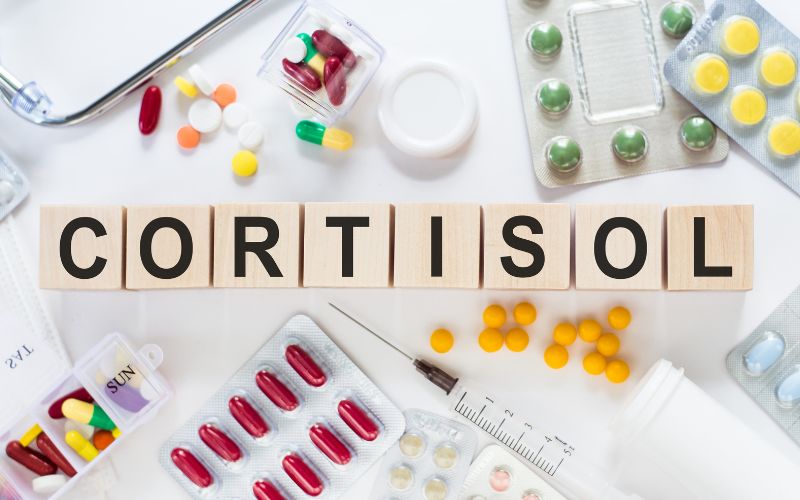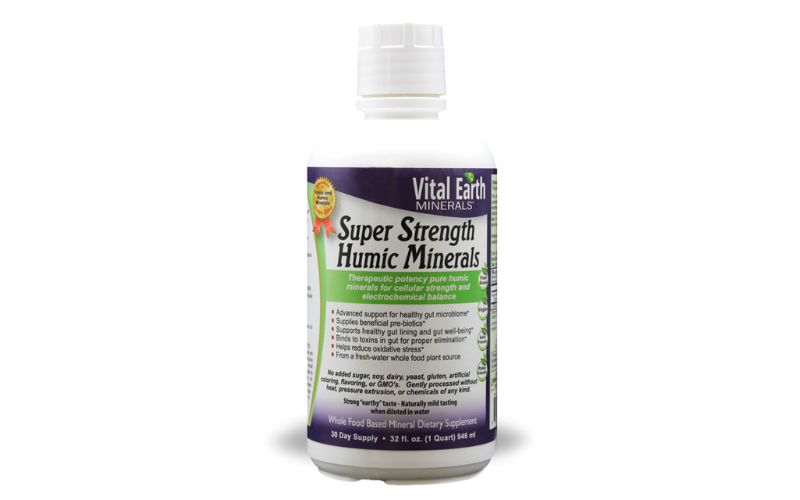Cortisol Detox Diet: Reset Your Stress Naturally
12th May 2025
In our fast-paced lives, stress has become almost unavoidable. Whether juggling work deadlines, managing personal responsibilities, or staying plugged into a nonstop digital world, our bodies are often on high alert. This constant tension activates cortisol, the body’s primary stress hormone. While cortisol plays an important role in helping us respond to short-term stress, chronically elevated levels can wreak havoc on our overall well-being.
Enter the Cortisol Detox Diet, a lifestyle approach designed to help reset your body’s stress response and restore balance to your daily rhythm.
Ready to reset your stress from the inside out? Order Vital Earth Minerals Stress Support!
What Is Cortisol and Why Does It Matter?
Your adrenal glands produce cortisol, which regulates energy, alertness, and the body’s internal clock. It naturally peaks in the morning to help you wake up and tapers off throughout the day to prepare your body for rest.
But when stress becomes constant—whether emotional, physical, or environmental—cortisol levels can remain elevated. Over time, this can impact sleep, mood, digestion, immune health, and even your body's ability to recover after workouts or long days.
A Cortisol Detox Diet doesn’t involve harsh cleanses or fasting. Instead, it's a mindful eating and lifestyle plan that supports your body’s natural ability to rebalance itself.
Signs Your Cortisol May Be Out of Whack
You might not see cortisol, but you can feel it when it's working overtime. Some common signs that your cortisol may be elevated include:
- Trouble falling or staying asleep
- Feeling wired but tired
- Cravings for salty or sweet snacks
- Difficulty focusing or feeling foggy
- Low energy in the afternoons
- Ups and downs in mood
If these sound familiar, your body may signal that it needs a reset. The good news is that small, consistent changes in your daily routine and what you eat can make a big difference.
The Cortisol Detox Diet: Core Principles
A cortisol-friendly lifestyle is built on five key pillars: balanced meals, steady energy, nourishing nutrients, restful sleep, and mindful movement. Here's how to bring these principles into your daily life:
1. Focus on Whole, Real Foods
The cornerstone of any cortisol detox is a diet built around simple, unprocessed foods. These provide the nutrients your adrenal glands need to function properly and support a steady mood and energy throughout the day.

Include foods like:
- Leafy greens (spinach, kale, romaine)
- Berries, apples, bananas, and colorful fruits
- Root vegetables like sweet potatoes, carrots, and beets
- Nuts and seeds for healthy fats
- Wild-caught fish, pastured eggs, and legumes
- Fermented foods like kimchi or sauerkraut
Avoid foods that are overly processed, full of artificial additives, or high in refined flour and sugar, as these can lead to energy crashes and trigger further cortisol spikes.
2. Stabilize Your Energy with Consistent Meals
When your body doesn’t get fuel at regular intervals, cortisol levels can rise to help make up the energy gap. That’s why skipping meals or relying on caffeine to get through the day can backfire.
Aim to:
- Eat every 3–4 hours
- Include protein, healthy fats, and fiber-rich carbs at each meal
- Keep snacks handy — like almond butter with an apple or a hard-boiled egg with cherry tomatoes
This approach helps avoid the energy rollercoaster that can leave you drained and on edge.
3. Hydrate for Resilience
Even mild dehydration can elevate cortisol. Start your day with a large glass of water, and keep sipping throughout the day. Herbal teas like chamomile, lemon balm, or holy basil (tulsi) can be calming additions.
Avoid: Energy drinks, soda, and too much coffee, all of which can stimulate cortisol production.
4. Rebuild Your Sleep Rhythm
One of cortisol’s main functions is regulating your sleep-wake cycle and fighting insomnia. But when levels stay high at night, falling asleep can feel impossible. Some effective ways to restore your natural rhythm include:
- Go to bed and wake up at the same time daily
- Reduce screen time 1–2 hours before bed
- Try a wind-down routine with reading or gentle stretching
- Use blackout curtains or an eye mask
Many people report better sleep quality within a week or two of starting these habits.
5. Move Mindfully
While intense workouts can be great occasionally, overexercising during stressful periods can elevate cortisol. The gentle, restorative movement supports energy and recovery without overloading the system.
Try:
- Walking in nature
- Yoga or Pilates
- Light strength training
- Swimming or low-impact cardio
Listen to your body. Movement should feel energizing, not draining.
Sample Cortisol Detox Diet Plan
|
Time of Day |
Meal |
|
Morning |
Warm lemon water, scrambled eggs with spinach & avocado, whole grain toast |
|
Mid-Morning |
Banana with a handful of walnuts |
|
Lunch |
Grilled salmon bowl with quinoa, arugula, cucumber, and tahini dressing |
|
Afternoon Snack |
Carrot sticks with hummus |
|
Dinner |
Roasted chicken thighs, sweet potatoes, sautéed greens |
|
Evening |
Chamomile tea, 10-minute stretching, journaling or reading |
Bonus: Stress-Soothing Foods to Include
Add these cortisol-supportive foods into your routine:
- Avocados – Full of healthy fats and potassium for heart and brain support
- Pumpkin seeds – High in magnesium, which calms the nervous system
- Turkey & chicken – Rich in tryptophan to help produce serotonin
- Chia & flaxseeds – Excellent sources of omega-3s and fiber
- Dark chocolate (moderate) – Contains flavonoids that reduce stress hormones
What to Avoid on a Cortisol Detox Diet
Try to limit or eliminate the following:
- Processed and sugary snacks
- Eating late at night
- Caffeine overload (especially after noon)
- Alcohol in the evenings
- Multitasking all day without mindful breaks
Instead: Build in rituals of care — like deep breathing, short walks, or stepping outside to reset.
Long-Term Benefits of a Cortisol Detox Diet
Committing to a cortisol-friendly lifestyle doesn’t just help you feel better for a week — it builds resilience for life. Here’s how:
Improved Sleep Quality
Lower nighttime cortisol means deeper, more restorative sleep. Over time, better sleep contributes to sharper focus, reduced irritability, and faster recovery — mentally and physically.
Steadier Energy and Fewer Crashes
By stabilizing blood glucose with regular, balanced meals, you'll notice fewer afternoon slumps and more even energy levels throughout the day.
Mental Clarity and Focus
When cortisol is balanced, brain fog lifts. Nutrient-rich foods like leafy greens, berries, and healthy fats support cognitive performance and memory.
Emotional Balance
Hormone imbalances often cause mood swings and irritability. This diet supports serotonin and dopamine production, which are key to calmness, happiness, and motivation.
Stronger Immune Health
Chronic stress weakens immunity. A diet rich in antioxidants, omega-3s, and gut-supporting foods strengthens your body’s natural defenses.
Greater Sense of Calm
With mindful eating, movement, and sleep, your nervous system becomes more resilient, helping you respond more easily to life’s ups and downs.
Final Thoughts
The Cortisol Detox Diet isn’t just a plan — it’s a commitment to nurturing your body through calm, consistency, and care. When you nourish your body with the right foods, hydrate, rest deeply, and move gently, you give your system the space it needs to thrive.
Your body knows how to heal — you just have to give it the tools.
Frequently Asked Questions
How long should I follow a cortisol detox diet?
You may start seeing benefits in as little as two weeks, but ideally, this becomes a long-term lifestyle. Consistency is key — the more you commit, the deeper the benefits.
Can I still drink coffee on a cortisol detox?
It depends. If you're jittery, anxious, or having sleep trouble, it’s smart to scale back. You might try switching to decaf or herbal teas until your cortisol levels rebalance.






